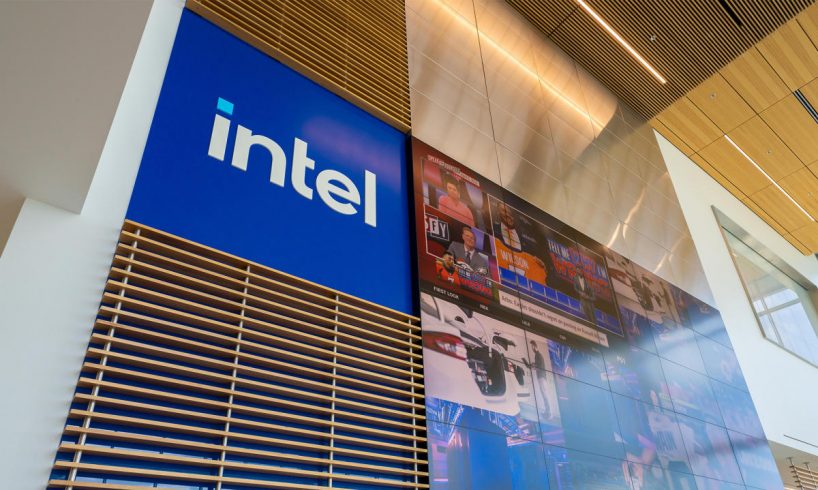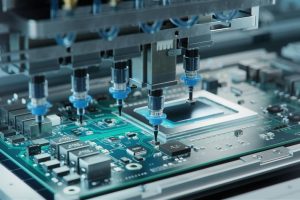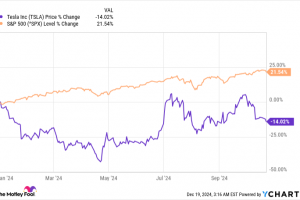
Intel (NASDAQ: INTC) is a stock that investors could easily dismiss. The longtime leader in the semiconductor industry has been eclipsed by Nvidia and AMD — and amid the staggering costs of entering the foundry business, many investors have turned their backs on the chipmaker.
The good news for Intel is that artificial intelligence (AI) has led to a massive spike in semiconductor demand. This and the enormous government subsidies highlight why Intel stock should eventually return to growth. Plus, a largely overlooked factor should help ensure that success.
Intel’s saving grace
Amid its entry into the foundry business, Intel may succeed simply because the government needs it to succeed. Here’s why.
Currently, Taiwan Semiconductor Manufacturing (TSMC) is the leading chip producer, with about two-thirds of the world’s semiconductor production taking place in Taiwan, according to TrendForce. This is gravely concerning to the U.S. government because of Taiwan’s proximity to China and its longtime threats to invade the island.
Hence, the U.S. and other countries have offered tens of billions of dollars in subsidies to chipmakers like Intel to manufacture chips at home. Admittedly, Intel lags behind TSMC and Samsung technologically, and both of those companies are building foundries in the U.S.
Nonetheless, Intel has more foundries in the U.S. than any other company. Also, besides TSMC and Samsung, Intel is the only company buying the advanced equipment from ASML necessary to build the world’s most advanced chips. The purchase of ASML’s most advanced equipment is part of CEO Pat Gelsinger’s effort to make Intel the technology leader in the chip industry again.
Intel’s challenges
The company’s plan to become the technological leader by next year is unlikely to come to pass. However, it has made improvements in an attempt to recover the lead it lost to longtime rival AMD.
Also, the company announced the Gaudi 3 Accelerator, an AI chip it hopes can compete with Nvidia. While Intel touts its advantages over Nvidia’s Hopper H100 chip, Nvidia has already moved on to the Blackwell…
..






